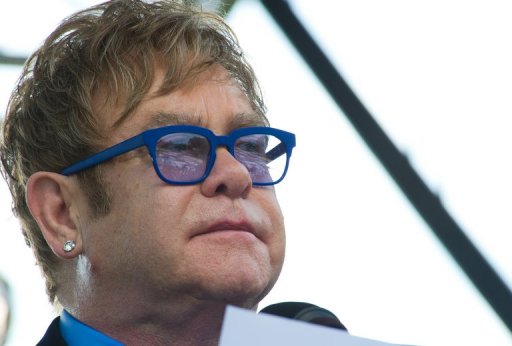(AFP) The US states of Alabama and South Carolina discriminate against HIV-positive prisoners by separating them from others and excluding them from early release programs, singer Elton John said Monday.
Infected inmates also face hurdles accessing treatment they need to manage their disease and stop it from progressing, the British celebrity alleged in an opinion piece published in the Washington Post.
“In the ’80s, people infected with the AIDS virus faced horrendous, daily discrimination and injustice,” John wrote. “Today, Alabama and South Carolina are blatantly and dangerously discriminating against HIV-positive prisoners.”
John is the founder of the Elton John AIDS Foundation and penned “Love is The Cure: On Life, Loss and the End of AIDS.”
While in Alabama, prisoners infected with HIV are forced to wear white armbands, their counterparts in South Carolina are housed in maximum security facilities alongside death row convicts, according to John.
“Of course, prisoners waive certain rights when they break the law,” John wrote. “But HIV is no longer a death sentence; simply having the virus merits neither cruel and unusual punishment nor the denial of opportunities to earn one’s way back into society.”
John said authorities in the two southern states insist their policies are justified by the need to provide medical care to such inmates and prevent the spread of the virus — two points he called excuses lacking evidence.
“By depriving HIV-positive prisoners of equal treatment, Alabama and South Carolina promote fear, prejudice and even violence against them.”
John’s piece coincided with opening arguments in a class-action lawsuit filed by the American Civil Liberties Union aimed at ending Alabama’s segregation of prisoners with HIV.
“The mere fact that a person has HIV does not make him a threat to anyone, and there is no legitimate reason whatsoever to categorically segregate prisoners with HIV,” said Margaret Winter, associate director of ACLU’s National Prison Project.

COMMENTS
Please let us know if you're having issues with commenting.